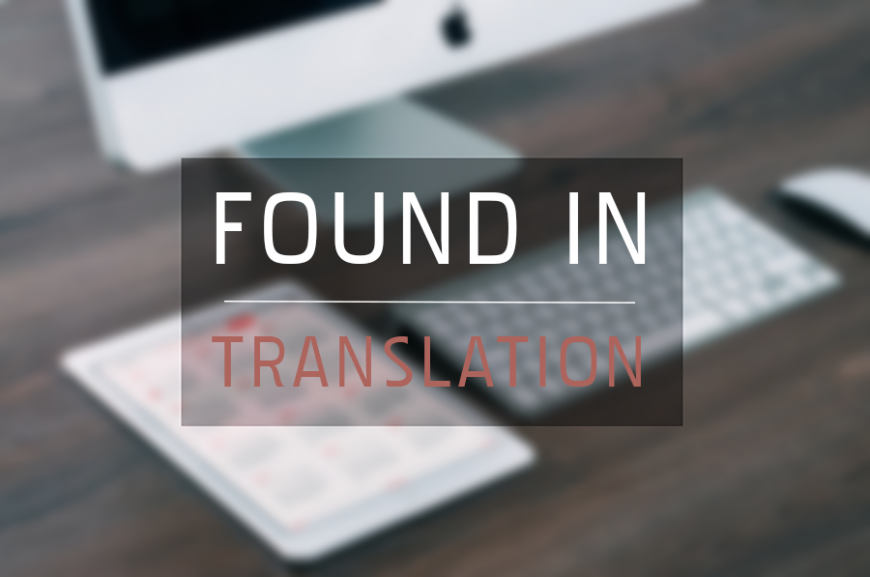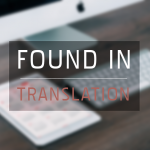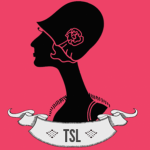 When I first announced the upcoming launch of the Found in Translation series, Simon Berrill immediately expressed his interest in taking part. Simon was born in England and lived there for the first 36 years of his life. He studied History at the University of Bristol and became a journalist, working on various regional newspapers. He might never have become a translator had he not gone on holiday to Rome in 1998 and met Marta, who became his wife two years later, after he moved to her home town of Badalona, near Barcelona. And that’s why Simon came as the perfect match for this series!
When I first announced the upcoming launch of the Found in Translation series, Simon Berrill immediately expressed his interest in taking part. Simon was born in England and lived there for the first 36 years of his life. He studied History at the University of Bristol and became a journalist, working on various regional newspapers. He might never have become a translator had he not gone on holiday to Rome in 1998 and met Marta, who became his wife two years later, after he moved to her home town of Badalona, near Barcelona. And that’s why Simon came as the perfect match for this series!
Hello, Simon! It’s a pleasure to have you on the series. Can you tell the readers who you are and explain what your current job is?
Hello, and thanks very much for asking me to take part. I’m a British freelance translator based near Barcelona and working from Spanish, Catalan and French into English. I specialize in tourism in its broadest sense, including aspects like heritage, arts, food and drink, sport and business.
Let’s go a couple years back… Your previous career already involved the written word, but was that the job you envisioned as a child?
As a child, to be honest, I had very little idea what I wanted to do. I really started thinking about it when I was half way through university, studying history, and I realized that after my degree I was going to need a job. I decided to try to do something that involved writing, which was what I loved, and that led me into journalism. I worked as a reporter, sub-editor and news editor on different English regional newspapers for nearly 15 years.
However, fate had its way and the reality turned out quite different. Tell us, how were you found in translation?
It’s a bit of a long story, so you’ll have to bear with me. First of all, I met Marta, who is now my wife, completely by chance when we were both on holiday in Rome nearly 17 years ago now. She is Catalan, from Badalona, near Barcelona, and that got me learning new languages for the first time since school, when I’d studied French to a very high level. It also led me to quit my job and move to Catalonia in the spring of 1999, which meant I had to step up the language learning even further to get my Spanish and Catalan up to standard.
I initially thought I might do some freelance journalism but, when that didn’t work out, I turned to teaching English and, later, writing educational materials. One day, at a meeting about a writing project, I met an American translator and interpreter and, when I expressed an interest in his job and said it was something I might be interested in, he promptly gave me a list of contacts. It was one of the most generous things anyone has ever done for me and I’ll always be grateful to Pat Bones for his help.
Having no translation academic background, how did you learn about the ins and outs of the industry? Did you seek to get translation qualifications later on?
Most of the things I initially learned, I either taught myself or learned from experience, which was sometimes painful. I worked more or less in isolation for a long time, but, as I started to meet translators and to join professional organizations I began to feel I was missing out by not having some sort of qualification. That’s why in 2013 I began studying for the Chartered Institute of Linguists‘ DipTrans examination which I took and passed in 2014 in the Spanish-English combination. I probably could have gone on without it, but I’m proud of having the certificate and I feel that having a qualification gives a more professional image. I’ve also done various short courses in recent years, some on the business aspects of freelancing and others on my specialist areas.
Do you think that your previous career as a writer turned to your advantage?
My experience in journalism has helped me a lot because, although knowledge of foreign languages is obviously important for translators, there’s really no substitute for knowing how to write in your own language. It also helped give clients a little more confidence in me in the early days, despite my lack of experience. I think that the fact that journalists also have to learn to deal with people has helped me too when it comes to contact with customers and having to sell my services.
Finally, what can we wish you for the future?
Success with my attempts to specialize my business more and a good, happy life for myself and my family. Thank you, Emeline.
Related Posts





